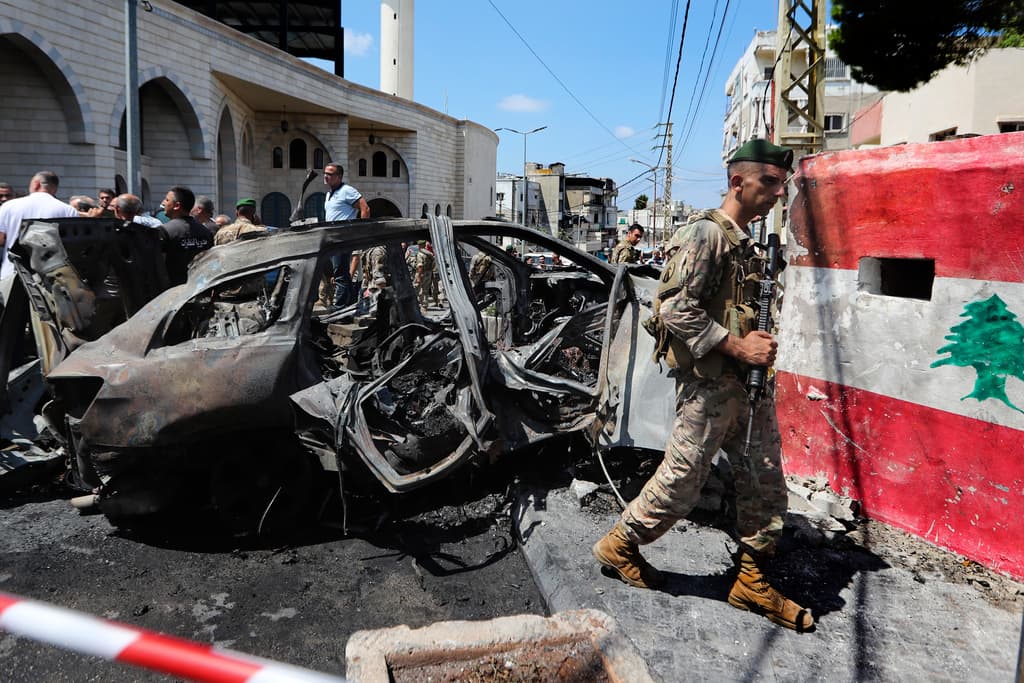According to consistent reports, the attack was directed against a car. The AFP news agency's reporter witnessed how the remains of a person were later retrieved from the burned-out vehicle.
The fact that a high-ranking Fatah member was killed is confirmed from the highest level within the Palestinian movement. The man was also a high-ranking commander in Fatah's armed branch, the al-Aqsa Martyrs' Brigades, according to his brother, who also holds a leading role there.
Israel confirms the attack and accuses the commander of having been involved in attacks on the West Bank and of working on behalf of Iran's Revolutionary Guard.
A representative of Fatah's highest leadership tells AFP that the deadly attack shows that Israel is seeking a large-scale war in the region.
Several deadly attacks
The terrorist-listed group Hamas, which is at war with Israel, and Fatah are arch-enemies since Hamas ousted Fatah from the Gaza Strip in connection with deadly clashes following Hamas' election victory in 2006. Since then, Hamas has ruled Gaza, while Fatah has had government responsibility on the Israeli-occupied West Bank.
Earlier this summer, the two movements took a step closer to each other when they signed an agreement on "national unity" at a meeting under Chinese auspices.
Elsewhere in Lebanon, the situation remains tense. In eastern Lebanon, one person was killed and 20 injured in Israeli attacks, Lebanese authorities announced early on Wednesday. Earlier during the night, reports emerged of four people being killed in the southern parts of the country.
Struck against military structures
Israel's military reports that it struck several military installations belonging to Iran-backed Hezbollah in southern Lebanon earlier on Tuesday. It further reports that several projectiles were fired towards Israel from Lebanon during Tuesday evening. The Israeli military rarely comments on targeted attacks like the one that occurred in Sidon.
Tensions in the region have increased further after an attack on the Israeli-occupied Golan Heights on July 27, where twelve children and young people were killed. Only days after that, a Hezbollah leader was killed, whom Israel had pointed out as responsible for the act.






